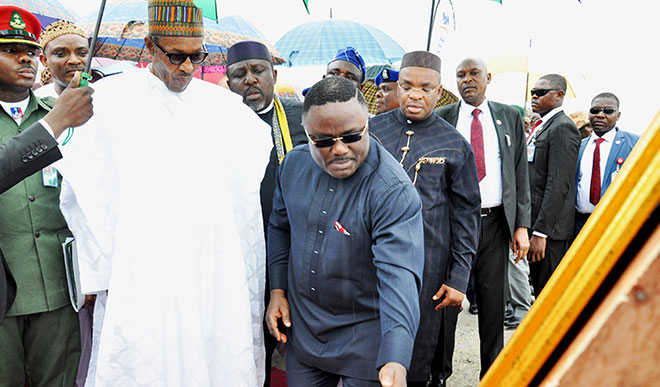C/River superhighway: Community, NGOs insist on flaws, indict Ayade
A few weeks ago, community members including women and youths protested against the super highway project in Cross River State, over what they said was the imminent destruction of their farmlands, crops and forests. They said their only means of livelihood would be destroyed, and therefore want the project stopped or adequate compensation paid them. […]


A few weeks ago, community members including women and youths protested against the super highway project in Cross River State, over what they said was the imminent destruction of their farmlands, crops and forests. They said their only means of livelihood would be destroyed, and therefore want the project stopped or adequate compensation paid them.
Also more international organizations are calling on President Muhammadu Buhari to stop Governor Ben Ayade from continuing with the proposed construction of the 260 kilometre super highway billed to stretch from Bakassi creeks to boundaries of Benue State in North Central.
The organisations, World Wildlife Foundation (WWF), Wildlife Conservation Society (WCS), Nigerian Conservation Foundation, Community Conservation and Development Initiatives as well as Environmental Resources Management said they have written separately to the Minister of Environment, Amina Mohammed, alerting her about the many flaws contained in the revised Environmental Impact Assessment which the governor was asked to redo. The groups had earlier mounted pressure over the devastating effect which the super highway was to impact on the ecosystem and the forest communities.
In their separate letters, they accused the governor of deliberately allowing former errors detected in the earlier EIA to persist in the revised one, and attempts to force the project through in spite of outcry against it. However, the Senior Media Adviser to the governor, Mr. Christian Ita, has said that the NGOs were sponsored against Ayade’s government even when the governor was ready to comply with and revise the EIA, substituting all that was required.
Ita said the government would not deliberately go out to harm the forests and the people but that the intention of government was genuine which positive effects would outweigh the little losses as a result of running the super highway through the forests.
Meanwhile, the programme director of WCS in Nigeria, Andrew Dunn, said the revised EIA failed to address the impacts of the 20km corridor, disclosing that it contained poor quality or wrong data, and also failed to consider impacts on existing protected areas.
